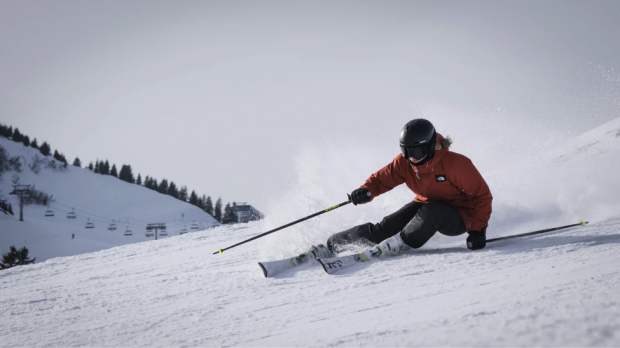Are Extreme Sports too Dangerous and What to Do After an Accident?
Extreme sports are known for their thrills, high speeds, adrenaline rushes and high risks. These sports can be done competitively or just for an individual’s pleasure, however, they tend to take place in difficult to reach geographic locations, which means access to medical care can be sparse and difficult to attain. The dangerous nature of extreme sports, combined with their remote geographic locations means if you experience an accident these can lead to significant injuries, potentially even life-threatening.

Common Risks Of Injury In Extreme Sports
Extreme sports, also referred to as action sports are categorised differently from your standard sport as extreme sports come with higher speeds and significantly higher risks. Despite the higher risks, extreme sports are continuously growing in popularity. Common extreme sports are mountain biking, skiing, snowboarding, surfing, rock climbing, quad biking, white water rafting, sky diving and many many more. Let’s take a look at a few examples of extreme sports and the injuries commonly associated with them.
1. Mountain Biking
Mountain biking has seen a surge in popularity over the last few years as it is known for its high speeds, difficult trails and intense terrains. This is done competitively and non-competitively around the world with bikers travelling further and further to get their kicks.
Common injuries sustained while mountain biking include:
- Shoulder dislocation
- Broken bones – especially the wrists. This can happen when riders are flung off their bikes and land with their hands outstretched. That kind of landing is also commonly associated with a broken clavicle (collar bone).
- Lacerations – this is a wound that occurs when the soft body tissue is torn. This tear tends to be jagged and is exposed to bacteria during the fall, posing a risk for infection.
- Knee injuries – these can occur due to falling badly on your knees and can result in breaks and ligament tears.
2. Skiing And Snowboarding
Skiing and snowboarding are two of the most popular winter sports. In the ski season of 2017/18, in the US alone, there were 472 ski resorts open with an estimated number of 53.3 million visitors. While skiing and snowboarding injuries are not as common as you might think, there are still lots of risks associated with the two sports, especially if you do not wear protective gear such as helmets. Without a helmet, you are putting yourself at risk of life-threatening injuries.
Common injuries sustained during skiing/snowboarding include:
- Broken bones – typically the clavicle, wrists, and the tibia (lower leg bone).
- Ligament tears, ACL injuries are quite common among skiers and they can be extremely painful and take a long time to heal.
- Significant back injuries, including breaks and slipped discs.
3. Surfing
Surfing is known for being a ‘cool dudes’ sport and is glorified in films. The number of surfers worldwide is estimated at 35 million people. While it is a fun way to spend your time in the sun, surfing comes with significant risks.
Common injuries sustained during surfing include:
- Death – this is typically due to drowning, but sometimes when knocked off a wave hard, your head can hit the water with a fatal force.
- Back injuries – due to frequent wipeouts and hard falls against the water.Lacerations – this can be the result of sharp edges on your surfboard or by sharp coral reefs.
4. SkyDiving
Despite the extreme nature of this sport, skydiving is becoming more and more popular. It is not rocket science to figure out the risks that come with jumping out of a plane, but here are some common injuries sustained during skydiving.
- Concussion
- Broken bones
- Injuries to the spine – this can occur when the landing doesn’t quite go to plan.
- Death – the worst-case scenario is a fatality, however, this is extremely rare as according to statistics provided by the United States Parachute Association, out of 3.3 million jumps in 2018 there were a total of 13 skydiving-related fatalities.

What To Do After An Accident?
If you or someone close to you has just experienced an accident here’s what you need to do.
1. Get Treatment Instantly
First things first, you will need to seek medical help instantly! Even if you think it is ‘not that bad’ or you are unsure of the severity of the injury, it is always best to be safe and not sorry. What you might think is a minor bump on the head could actually be something a lot more daunting. Take every accident seriously and get medical treatment as soon as you can.
2. Seek Legal Advice
The next thing you need to do is seek legal advice. If you are unsure whether you need to or not, seeking legal help after a serious injury is always advisable as your accident might be the fault of someone else. If this is the case, and someone else’s negligence is the cause of your accident you will be able to make a compensation claim.
3. Take Time To Heal
Depending on the nature of your injury or injuries sustained during the accident, it is important to allow yourself enough time to heal. Rushing the process to get back into the sport or back into work can be dangerous, as you risk hurting yourself or making the injury worse. Too often athletes try to jump back in the saddle sooner than they are ready just to re-injury themselves and prolong their return even more so.
4. Consider Therapy
Going through an accident can be extremely traumatic, and if you have experienced an accident that has left you struggling both physically and mentally, you ought to consider taking on a course of therapy to help you overcome any anxieties, stresses and trauma. There is no shame in seeking help for your mental health, and in fact, it will make you twice as strong for facing the world again following your accident.
Ultimately, there are always going to be risks associated with any sport, let alone with extreme sports. However, there are things you can do to manage these risks, for example wearing a helmet. So make sure you take the necessary steps to protect yourself and have the number of a legal adviser handy, just in case.
